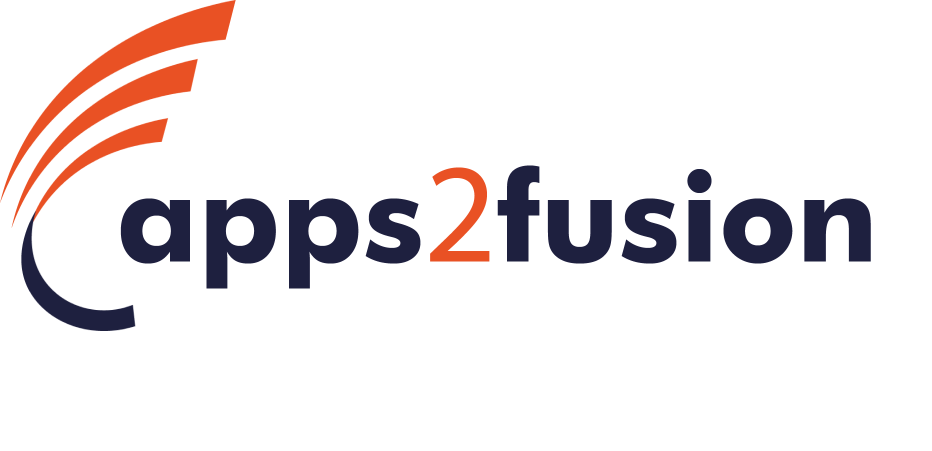Oracle Fusion Financials Cloud (Fusion Release 13)

Crafted with meticulous attention to detail by a seasoned industry professional with over 5 years of Oracle financials expertise, the course “Oracle Fusion Financials Cloud” provides learners with a comprehensive curriculum to acquire comprehensive knowledge and proficiency in this domain.
Advantages with Fusion Financials:
Deliver real-time, accurate information to users at all levels.
Increase productivity with role-based dashboards that bring work, information, and relevant tasks directly to finance users’ desktops.
Ensure all users work from the same source of information with a single data source.
Make better decisions when entering transactions with embedded transactional intelligence.
Increase shared services efficiency with a scalable, global platform.
Enforce regulatory compliance and corporate policies across business processes with automated workflows and approvals.
Manage enterprise risk and reduce compliance costs with end-to-end processes for governance, risk, and compliance.
Plan and forecast with better precision and close your books faster with delivered integration with the market-leading planning and consolidation solutions.
Adopt Fusion Financials with your choice of deployment options, such as on-premise, private cloud, public cloud, or a hybrid approach.
Discover the latest advancements in Oracle Fusion Finance, check out:
Oracle Financial Feature Update Training (22A)
Oracle Financial Feature Update Training (22B)
In This Module We Will Learn:
MODULE 1:
- Overview of Fusion Applications
- Pre session Q&A
- Technical Documentation
- Functional Setup Manager and the Financial Offering
- Offerings
- List of Difference
- Functional Security Practical
- Functional Security Theoretical Session
- Q&A session
MODULE 2:
- Basic Accounting, Conversion Calendar and Currency
- Chart of Account
- Oracle Fusion Enterprise Structures, Ledgers, and Lega Entity
- Business Unit, Inventory Organizations and Practical Examples
- Q&A Session
- Reporting Unit and Reference Data Sharing
- Q&A Session 8. General Ledger Calendar and Currency
- Q&A and Examples
- General Ledger Overview and Chart of Account Component
- Defining Chart of Account
- Practical Session
- Types of Ledgers
- Q&A Session
MODULE 3:
- Rapid Implementation Model
- Q&A
- Manage and Publish Account Hierarchies
- Journal Components and Types of Journals
- Set Profile Preferences and chart account Practical
- Manage Currencies, Calendar & Primary Ledgers Practical
- Reference Data Set and Configuration Practical
- Assign Roles and Examples
- Create Journal
MODULE 4:
- GL Transactions and Shorthand Aliases
- Reverse Journal and Create Journal in a Spread Sheet
- Auto Post, Oracle New Features and Functional Journal
- Reversal Criteria Accrual Adjustments 5. Ledger Set 1
- Data Access Set, Security Rules and Cloud Financial
- Cross Validation Rules and Rectification
- Revaluation and Procure Pay
MODULE 5:
- Pre Session-Q&A
- Disadvantages of Reporting Currency Ledger and Manual Translation
- Matching, Receiving Types of Invoice Payable Setup
- Create Procurement Agent and Payment terms
- Manage Procurement Agent & Offset Accounting
- Secondary Ledger
MODULE 6:
- Payable Setup and Procurement
- Distribution Set & General Ledger
- Supplier Architecture
- Supplier, Address, Site & Site Assignments
MODULE 7:
- Pre-Session Question & Answer
- Recurring Invoice
- FDP & Discount
- Discount Payment and Manual Payment
- Foreign Currency & Cross Currency Payment
- Future Dated Payments 8. Payment Format Customization and Merge Suppliers
- Third Party Relationship, Credit and Debit Memo
- NHS Suppliers, Reissue, Void, and Prepayment
MODULE 8:
- Agenda Discussion and Pression Q&A
- Assets Life Cycle
- Asset Module
- System Control, Fiscal Years, Assets Calendar, and Convention
- View Asset KFF, View Asset KFF Value sets and Create Values for Asset
- Asset Books and FA Lookups
- Define Open Method, Asset Categories and Transactions
- Asset addition and Mass Addition
- Depreciation Methods and What If Analysis
MODULE 9:
- Recap, Amortization and Adjust Asset
- Asset Transfer and Adjustment
- CIP Asset and Asset Reclassification
- Revaluation, Retirement and Reinsulate
- Tax Books, Initial and Periodic Mass
- Cash Management
- Q&A Session
MODULE 10:
- Order to Cash
- Receivable Process, AR Transaction Flow, Billing Manager and Specialist
- Receivables
- Auto Invoice and System Options
- Customer Profile Class
- Receivable Payment Terms and Manage Statement Cycle
- PaaS and SaaS 8. Manual Transaction sources and Memo Lines
- Transaction Types
- Auto Accounting
- Q&A Session
- Create Transactions
MODULE 11:
- Receivable Process
Course Content
Similar Courses:

Oracle Billing and Revenue Management Training
Carefully constructed by our proficient trainer with more than 5+ years of mastery in the…

Oracle Risk Management Training
Carefully constructed by our proficient trainer with more than 5 years of mastery in the…

Oracle Fusion Intercompany Training
Developed by an industry expert with over 5+ years of expertise in the Oracle Financials…

Oracle Billing and Revenue Collection Training
The Oracle Billing & Revenue Collection training is meticulously crafted by a highly seasoned industry…


